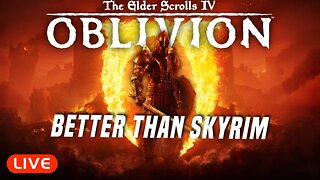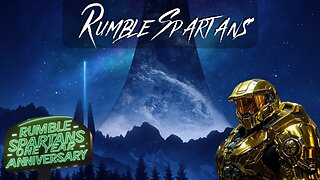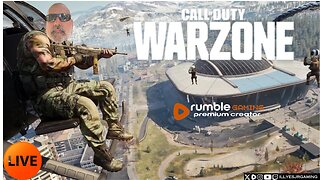Premium Only Content

Da Urban Conservative: The Struggle of Delineation in the Search for Enslaved People’s Records
In this powerful episode of Da Urban Conservative, we embark on a deep and reflective journey into the past, examining the challenges and triumphs of tracing our lineage back to the era of slavery. For many in our community, understanding where we come from is a crucial step toward reclaiming our identity, yet the path to uncovering this history is anything but straightforward.
The National Archives holds a treasure trove of federal records that can help identify former enslaved people and their enslavers. These records include census data, military service files, and court cases that serve as crucial pieces in the puzzle of our ancestors' lives. However, navigating these archives can be daunting, as the information is often fragmented and difficult to piece together. The journey to find these records is not just about uncovering names; it's about connecting the dots of our shared history, a history that has been systematically erased or obscured over generations.
Customs Service Records offer another key resource, containing manifests of vessels that transported enslaved individuals. These documents provide details such as names, ages, and physical descriptions of those who were forcibly taken from their homelands and brought to America. Imagine the heartbreak of seeing your ancestor's entire existence reduced to a few lines on a piece of paper, yet these lines are invaluable—they are among the few tangible connections we have to our past. But even these records are incomplete, often leaving us with more questions than answers.
Before 1812, the best chance of finding information about enslaved individuals often lies in private papers—personal records kept by slave owners. These documents might list enslaved people as property, along with other assets, reflecting the brutal reality of their dehumanization. Searching through these records is a laborious and emotionally taxing process. It requires a deep commitment to uncovering the truth, no matter how painful that truth may be. And yet, for many, this search is essential to understanding not just who their ancestors were, but also the systemic forces that shaped their lives.
In the modern era, technology has opened new doors for those of us seeking to trace our roots. Databases like Enslaved.org have compiled data on enslaved people, slaveholders, and their allies, making it easier to search for specific individuals or events. These digital tools represent a significant advancement in our ability to reconnect with our past, providing a centralized resource that can cross-reference information from various sources. However, even with these advancements, the journey to uncover our history remains challenging. It's not just about accessing information; it's about knowing where to begin and how to interpret the fragments of our past that we uncover.
This is where the struggle for delineation comes into play. For many in our community, the challenge isn't just in finding these records—it's in understanding what they mean and how they fit into the broader narrative of our lives today. Delineation is hard when you have more people who don’t know where they’re going. If we are to make sense of our history, if we are to reclaim it, we must first understand where we stand today. The struggle isn’t just in the search—it’s in our very sense of direction. So many of us are lost in the present because we’re disconnected from our past. That’s why these records, these fragments of our ancestors’ lives, are so crucial. They are the breadcrumbs leading us back to who we are.
As you watch this episode, reflect on your own journey. Are you searching for something you can’t quite define? Perhaps the key lies in understanding where you came from. This episode of Da Urban Conservative is more than just a historical exploration; it’s a call to action for all of us to reclaim our history, to connect the dots, and to find our way forward—together. We invite you to join us in this important conversation, to share your stories, and to be part of a community that is determined to uncover the truth of our past and chart a course for our future.
-
 3:13:59
3:13:59
SilverFox
5 hours ago🔴LIVE - OBLIVION IS BETTER THAN SKYRIM NOW
31.5K1 -
 DVR
DVR
SpartakusLIVE
9 hours agoDuos w/ StevieT || Trios or Quads Later?!
27K1 -
 7:19:12
7:19:12
OhHiMark1776
10 hours ago🟢04-27-25 ||||| Halo Multiplayer Rumble: No. 13 ||||| Halo MCC (2019)
82.7K -
 2:12:28
2:12:28
TheSaltyCracker
7 hours agoThey Killed Her ReeEEEe Stream 04-27-25
152K314 -
 2:33:51
2:33:51
vivafrei
18 hours agoEp. 261: Criminal Judges ARRESTED! Election in Canada! Santos Sentenced! RFK Jr. & Autism & MORE!
192K132 -
 6:24:31
6:24:31
Amish Zaku
10 hours agoRumble Spartans "The One Year" Event
48.7K1 -
 7:28:41
7:28:41
Illyes Jr Gaming
8 hours agoLaid Back Sunday Night Warzone Stream!
20.8K -
 1:51:18
1:51:18
Nerdrotic
10 hours ago $7.28 earnedDiscoveries From Graham Hancock's "Fight for the Past" | Forbidden Frontier 099
50.2K12 -
 1:09:42
1:09:42
Sarah Westall
8 hours agoHidden Tech Resembles Star Trek: Malaysian Airline, Portals & Wormholes w/ Ashton Forbes
57.9K27 -
 1:13:46
1:13:46
Josh Pate's College Football Show
9 hours ago $1.92 earnedCFB Truth About NFL Draft | Sheduer & Ewers Slide | James Franklin vs Fans | 2025’s Biggest What-Ifs
22.9K5